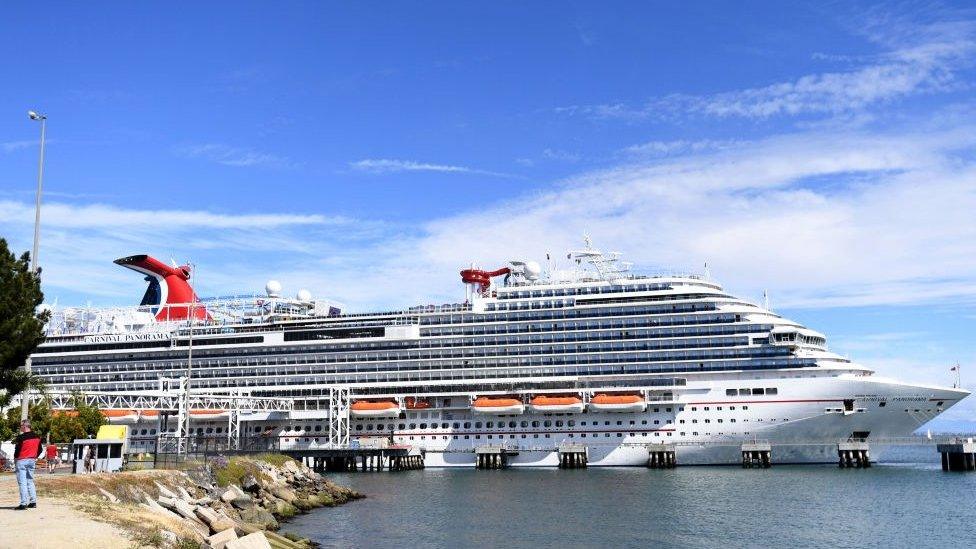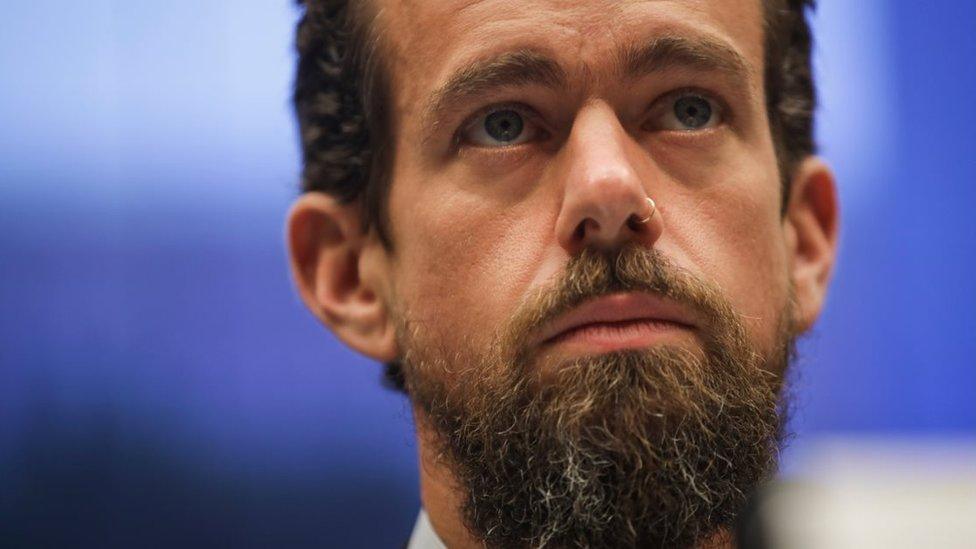Investors warned not to rush into travel and leisure stocks
- Published

Investors are being warned about piling money into the travel and leisure sectors after their recent surge.
Travel and leisure stocks including airlines and cinema chains have been hit hard by the coronavirus lockdowns and travel restrictions.
While their valuations have plummeted across the board, some stocks have seen their share prices rocket this week.
On Tuesday, cinema chain Cineworld shot up almost 50% while cruise ship operator Carnival surged more than 20%.
Cineworld, the world's second biggest cinema chain, announced bosses had waived salaries and bonuses as part of a survival plan to tackle coronavirus lockdowns.
Admitting the current situation was "extremely challenging", Cineworld said it had scrapped a planned dividend to shareholders for the last quarter of 2019.
But its share price shot up 49% on the London Stock Exchange despite its bleak outlook, with more than 780 cinemas closed across 10 countries.
Another travel and leisure stock, cruise ship operator Carnival, also saw a big price rise on Tuesday, after Saudi Arabia's sovereign wealth fund took a 8.2% stake in it.
Carnival's share price rose 11% on the New York Stock Exchange and 22% on the London Stock Exchange.
The cruise ship industry has been battered during the coronavirus pandemic with a number of outbreaks at sea raising concerns about the safety of cruise holidays.
Carnival has cancelled a series of scheduled sailings for 2020 and said it may struggle with bookings for 2021.
Given the dire outlook for the industry, experts are warning investors to tread cautiously when thinking these stocks have "bottomed out" and may be staging a recovery.
"Leisure and travel stocks are emerging from a deep and dark place," said Stephen Innes, global market strategist at AxiCorp. "While people will return to cinemas, revenues may be slow to pick up as movie goers and the industry respects social distancing guidelines."
After cinemas reopen, Mr Innes says they may continue to space out customers, which will reduce capacity and revenues. "After all, the last thing a movie chain wants to get accused of is being the next super spreader epicentre".
Grounded planes
Low-cost airline Easyjet saw it share price jump 15% on Tuesday, having secured a £600m coronavirus loan from the government. Some airlines are facing collapse as they are forced to ground planes while debts continue to mount.
Easyjet's rescue package comes at the same time airline industry trade body IATA published research showing that some 25 million jobs are at risk of disappearing with plummeting demand for air travel during the crisis.
"Many questions remain as to just how eager travellers are willing to board the confines of an airplane cabin even after the pandemic subsides," added Mr Innes.
The pan-European Stoxx 600 shares index rose 1.7% on Tuesday, with travel and leisure stocks rising 6.2%.
"People are trying to identify risks and opportunities now, and at last they believe they can better identify them," said Bruce Pang, head of macro and strategy research at China Renaissance Securities. "But the virus is still the greatest known unknown for the markets and for financial professionals."
Analysts are warning it may take longer for consumption to get back on track across all sectors, not just travel and leisure. "In short, it's still bad for airlines, bad for international hotels and slightly positive for domestic leisure activities. But still too early to say when the lockdown or social distancing rules will be relaxed," said Iris Pang, chief economist for Greater China at ING bank.
Even when restrictions are lifted, demand "could be slow to gain traction due to psychological scars, defaults, bankruptcies, and job losses," added Mr Pang.

A SIMPLE GUIDE: How do I protect myself?
AVOIDING CONTACT: The rules on self-isolation and exercise
MAPS AND CHARTS: Visual guide to the outbreak
VIDEO: The 20-second hand wash

- Published7 April 2020
